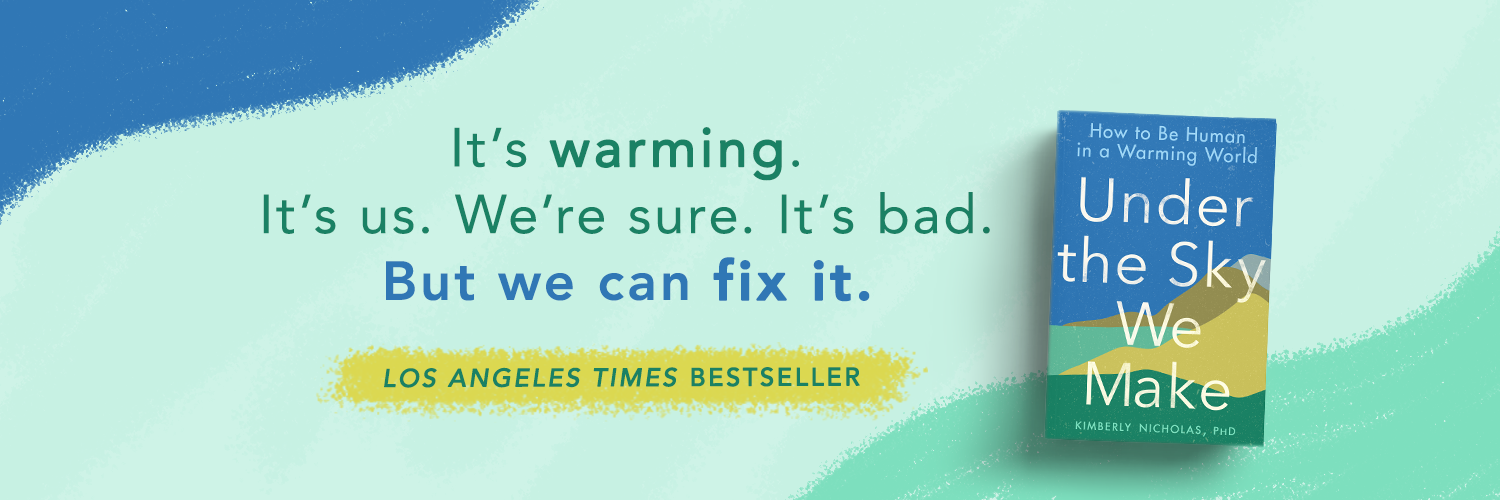|
I was recently contacted by a Swedish high school student writing a senior thesis with some questions about climate change and food production. Here are their questions, and my answers. 1. What effect does global warming have on food production? What kind of impact does this effect have on rich and poor countries? In general for most major food crops, increasing temperatures decrease yields. The more warming, the greater yield loss. About 2/3 of food that people eat worldwide (measured in calorie production) comes from 4 crops: wheat, maize, rice, and soybean. These crops are sensitive to temperature, as you can see below. Here rice is not so much affected (the green line does not decline very much with warming), and soybean can also tolerate some higher temperatures (the blue line does not drop much until more than 2° of warming occurs), but wheat (purple line) and maize (called corn in the US; red and orange lines) start to experience big yield losses that increase with more warming. The effect of warming on crops depends on physics (how much does the atmosphere warm) and biology (how do crops respond to warming), as well as social systems (how well can people cope with change and what resources do they have to do so- this can include traditional knowledge as well as technology like irrigation). Even rich countries can be affected. For example, I have just published a paper with colleagues that shows that wheat yields in Australia are likely to decline 50-70% with high warming from continued heat-trapping pollutants (greenhouse gases like carbon dioxide). 2. What actions/solutions are there to make the impact as little as possible? What have the countries done so far to prevent this? There are many ways to reduce climate change, for individuals, organizations like schools, communities, businesses, and countries. Individuals can consider their carbon footprint. Some of the biggest ways to reduce this are to eat less meat or adopt a vegetarian diet, minimize travel especially air travel, and choose to have fewer children. Organizations can assess their resource use and find ways to focus on delivering the desired services (like education) with less resource inputs. Fundamentally, to reduce the risks of climate change, the world needs to move towards a goal of zero carbon emissions. This means we need to stop burning fossil fuels like coal, oil and gas, which contain a lot of carbon that turns into the heat-trapping pollutant carbon dioxide in the atmosphere. How we use land to grow food is also a major contributor. Your question about what countries are doing is very timely. The international process around climate change is coordinated by the United Nations Framework Convention on Climate Change. There will be a meeting in Paris (called COP21) starting in November where new treaties are negotiated. Many countries have made good progress. One example that got recent attention was the deal between the US and China, which you can read about here. However, much more work needs to be done to meet the targets for limiting climate change to 2°C above pre-industrial levels. Right now, the countries are making statements about what their commitments will be to reduce emissions. You can read more here for an overview, and here for Europe. 3. Are there countries that can have a positive impact due to global warming? Yes, some areas and some sectors are likely to benefit from climate change. For example, it may be possible to grow more crops in Canada and Russia and other northern areas if they have longer growing seasons and warmer temperatures. Melting of Arctic ice could open up new shipping routes. However, the overall impacts of climate change are negative, and they outweigh the benefits. Many studies have shown that it will be cheaper to avoid climate change, than to spend money to adapt to change, especially if we continue high emissions and therefore experience a lot of warming, which will produce a lot of changes in the environment that are expensive and difficult or in some cases impossible to adapt to. 4. Are there any plans for the future? How will it look in the future when certain crops are lost or run out? The way I think about dealing with climate change is to “manage what we can’t avoid, and avoid what we can’t manage.” There are many options to deal with climate change in agriculture, like changing planting dates of crops, switching varieties, or using more irrigation. However, the more warming we experience, the more difficult it is to adapt, as the infographic from the Cambridge Institute for Sustainability Leadership briefing on the latest scientific studies from the shows. This is why it’s so critical to limit the amount of climate change we experience by reducing greenhouse gas emissions, so that the impacts are manageable. 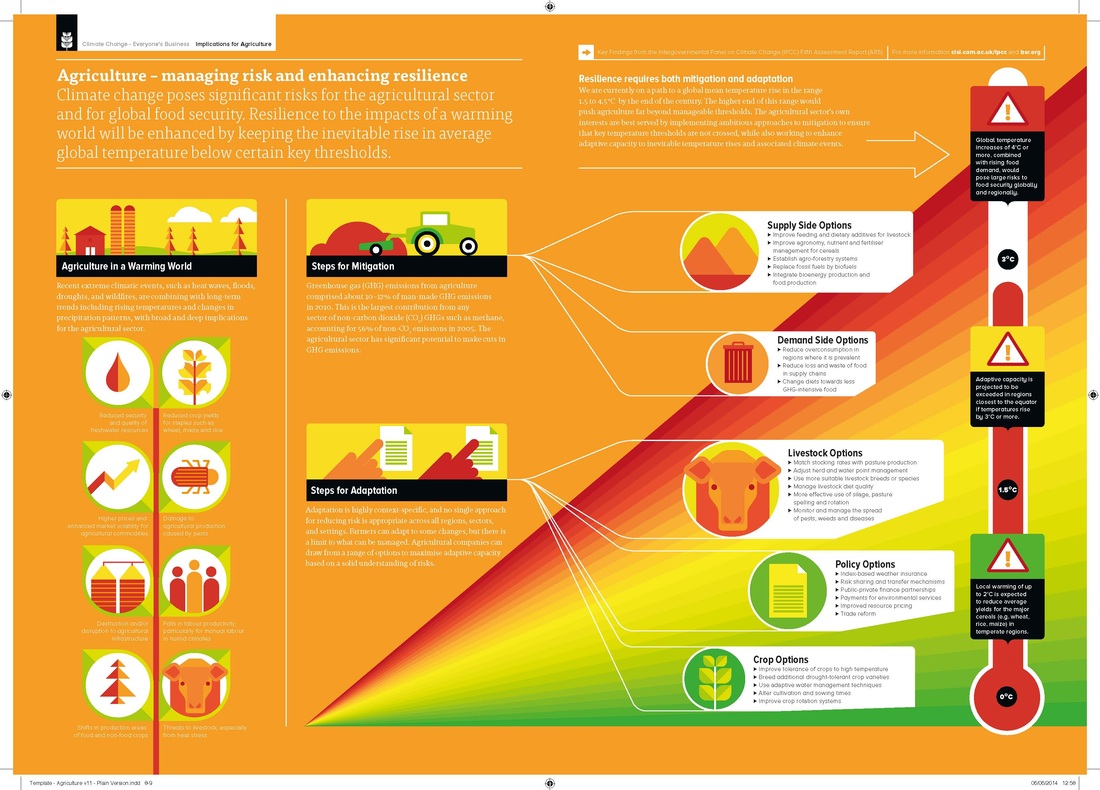 Credit: Cambridge Institute for Sustainability Leadership, IPCC Climate Science Business Briefings, "Agriculture" infographic, 2014. There are 13 excellent visual summaries of the latest climate science here: http://www.cisl.cam.ac.uk/business-action/low-carbon-transformation/ipcc-briefings/agriculture LUMES Commencement Speech |
Categories
All
Archives
November 2023
|
KIM NICHOLAS
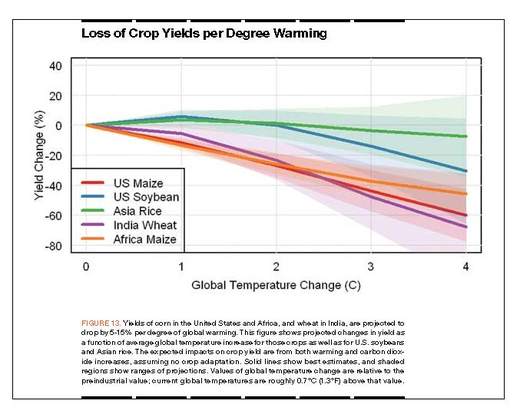
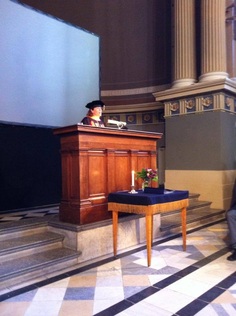
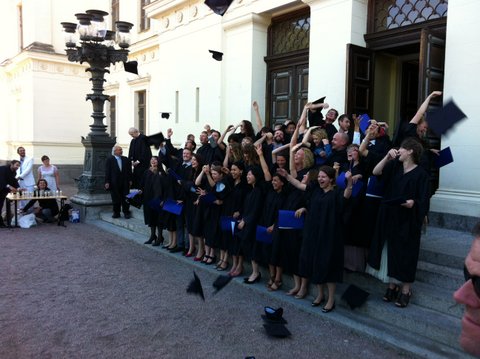
 RSS Feed
RSS Feed
